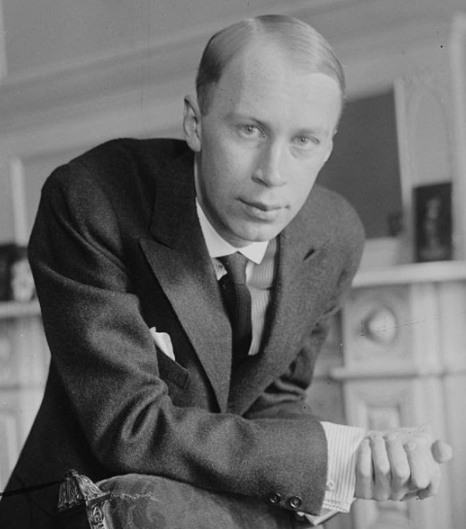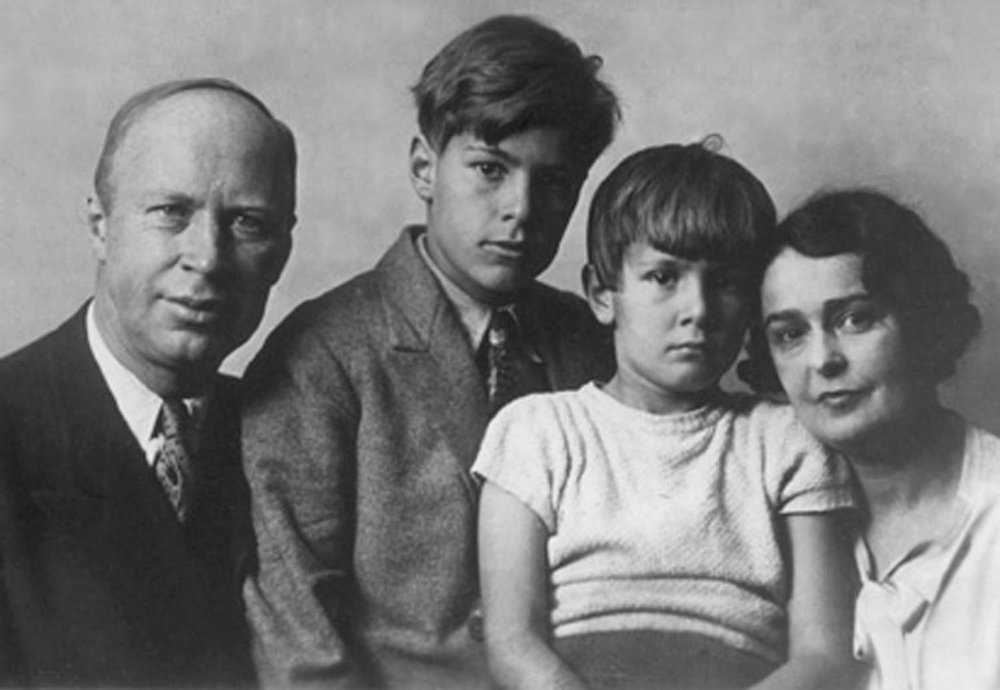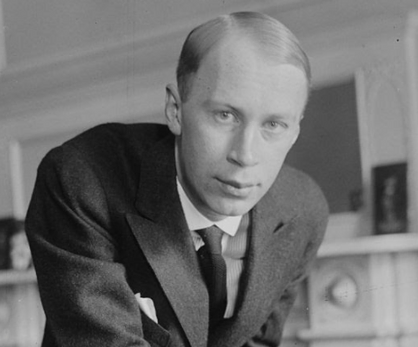Uncategorized
Sergéi Prokofiev
A man of many mysteries.
Some notes on the life of one of the most famous composers of the XX Century.

Sergéi Russian composer born in 1891. He started writing music from the age of five and by the age of thirteen, he was already awarded a place at the Conservatoire of St Petersburg due to his extraordinary piano skills (which he had gained from his mother who was also a great pianist) and his profound ability to write operas and overtures, which had written since he was 9 years old.
Sadly he was his parent’s only child after his two elder sisters died when they were babies. This gave him added pressure to be successful and thrive in music, which he did since his mother taught his first piano lesson after turning 3 years old.
Prokofiev managed to identify and perfect his own style since his adolescence and kept this stable throughout his career, further than that, his whole life. He definitely fitted the mould when it came to testing the boundaries of 20th-century music. Whilst he was studying at the Conservatoire he was told his first piano concerto was too violent with his angular rhythms, unexpected harmonies and twisted melodies, he usually wrote something that would make people talk.
People not only spoke about Prokofiev’s music but they also questioned his character, being noticeably younger than everyone else at the conservatoire, Prokofiev struggled to be accepted. His peers described him as too eccentric and arrogant and were always complaining about the ‘boring’ curriculum.
After graduation, Prokofiev initially made his success by being a primarily piano focused composer who made his pieces notoriously virtuoso. In fact, in 1913 there were so many different opinions that the audience used to leave the concert halls describing his music as abysmal and saying things like “the cats on the roof make better music”. We could say that bad publicity is still publicity, so Prokofiev was still notorious after all.
Prokofiev not only travelled all over the world with his music but he also lived in lots of different countries. After the Russian Revolution, he moved to America, then Germany and Paris after that, which was where he met his wife and brought up his two sons. It can be argued that Prokofiev’s love life with his wife was tragic and even abusive.
Married in 1924 Sergéi and Lina looked like the picture-perfect couple. However, real truths that were later uncovered in Lina’s diaries and letters would suggest different, as he left her for another woman.

Sergei and Lina Prokofiev, and their 2 sons
Despite his hidden family secrets, Prokofiev had lots of friends, musicians and non-musicians but one specific friend that he held close to him was composer Stravinsky. These two bonded over their musical views and although Prokofiev was known to dislike Stravinsky’s later works, he still appreciated the talent and labelled him as one of the greatest composers of their time (after himself, of course).
Let’s take a closer look of some of his most important and popular works:
Peter And The Wolf – Sergei Prokofiev
https://www.youtube.com/watch?v=ctsWdUaHsHM
Prokofiev wrote “Peter and The Wolf ” in 1936, completing the work in 4 days after a request by Natalya Sats, director of the Children’s Central Theatre of Moscow. The idea behind the petition was to cultivate children’s taste in classical music. Even though it didn’t have a good reception when it was released, “Peter and The Wolf” is still played till today in classical concerts for kids all around the world.
Prokofiev Piano Concerto #3
https://www.youtube.com/watch?v=FgnE25-kvyk
Prokofiev started this work in 1913, but after setting it aside for a long time, he completed it in 1921 while spending the summer in Brittany, France. It was premiered in December of 1921 in Chicago, with the Chicago Symphony Orchestra, conducted by Frederick Stock. But it wasn’t until 1922 that it gained major popularity, after a performance in Paris, conducted by Serge Koussevitzky.
This piece has been recorded more than 120 times by different pianists and orchestras, including Prokofiev himself. Some of the most notable recordings are the ones of Martha Argerich, Evgeny Kissin, Horacio Gutiérrez and Yuja Wang, to name a few.
Prokofiev – Troika (Lieutenant Kijé Suite)
https://www.youtube.com/watch?v=YbaY7p5ahZo
This suite was the accompanying music of the film “Lieutenant Kijé”, produced by the Belgoskino Film Studios in Leningrad and premiered in 1934. It was a commissioned work -is last one, actually- and Prokofiev’s first attempt at film music.
Even though he wasn’t the first choice for a film in the Soviet Union -because of his search and experimentation with dissonance- Prokofiev was actively seeking a way to return to his homeland after a decade living in Paris, so this opportunity was perfect not only to return, but for write more accessible music.
It was his first attempt in film music, but still he was confident about it. In Shilfstein’s “Sergei Prokofiev: Autobiography, Articles, and Reminiscences”, there’s a quote of the composer that states:
“I somehow had no doubts whatever about the musical language for the film”.
He went to rehearsals and made notes of the acting and the scenes.
Prokofiev – Romeo and Juliet Op. 64
https://www.youtube.com/watch?v=XX6GHiFKovw
The composer wrote this ballet based on Shakespeare’s work in 1935, although it was revised for it’s Soviet premiere in 1940. Op. 64. He also reused some parts of the piece in three suites for orchestra, and piano work.
Following the precepts of “Drambalet”, a form of dramatised ballet promoted by the Kirov Ballet to replace works with choreographic display and innovations, it was based on a synopsis by Adrian Piotrovsky and Sergei Radlov, that included a very polemic happy ending, contrary to the original story. After Radlov’s resignation from the Kirov in 1934, the Bolshoi Theatre made an agreement to produce the work in Moscow, keeping Piotrovsky in the staff.
The new happy ending provoked a strong controversy among the Soviet cultural officials, which caused the production to be postponed after the staff was regulated by the chairman of the Committee on Arts Affairs, Platon Kerzhentsev. The conductor Yuri Fayer met Prokofiev during the writing of the music, urging him strongly to use the traditional ending so the work could be finally premiered. The first performance at the Bolshoi Theatre was also conducted by Fayer.
In his later years, Prokofiev composed some larger works for the likes of orchestras and cantatas for mezzo-sopranos. These were usually highly dramatic performances that could be argued were fuelled by his heightened emotions in his personal life. However, later on, eight of his works were banned by the authorities so he couldn’t give performances of his amazing compositions. Because of this, he started to suffer financially, something that caused him health issues. Eventually, these complications led to his death in March 1953. If he did give up or was this always going to happen, that is a question no one truly knows the answer to. Prokofiev was a man of many mysteries and to this day he still holds a great share of secrets.

